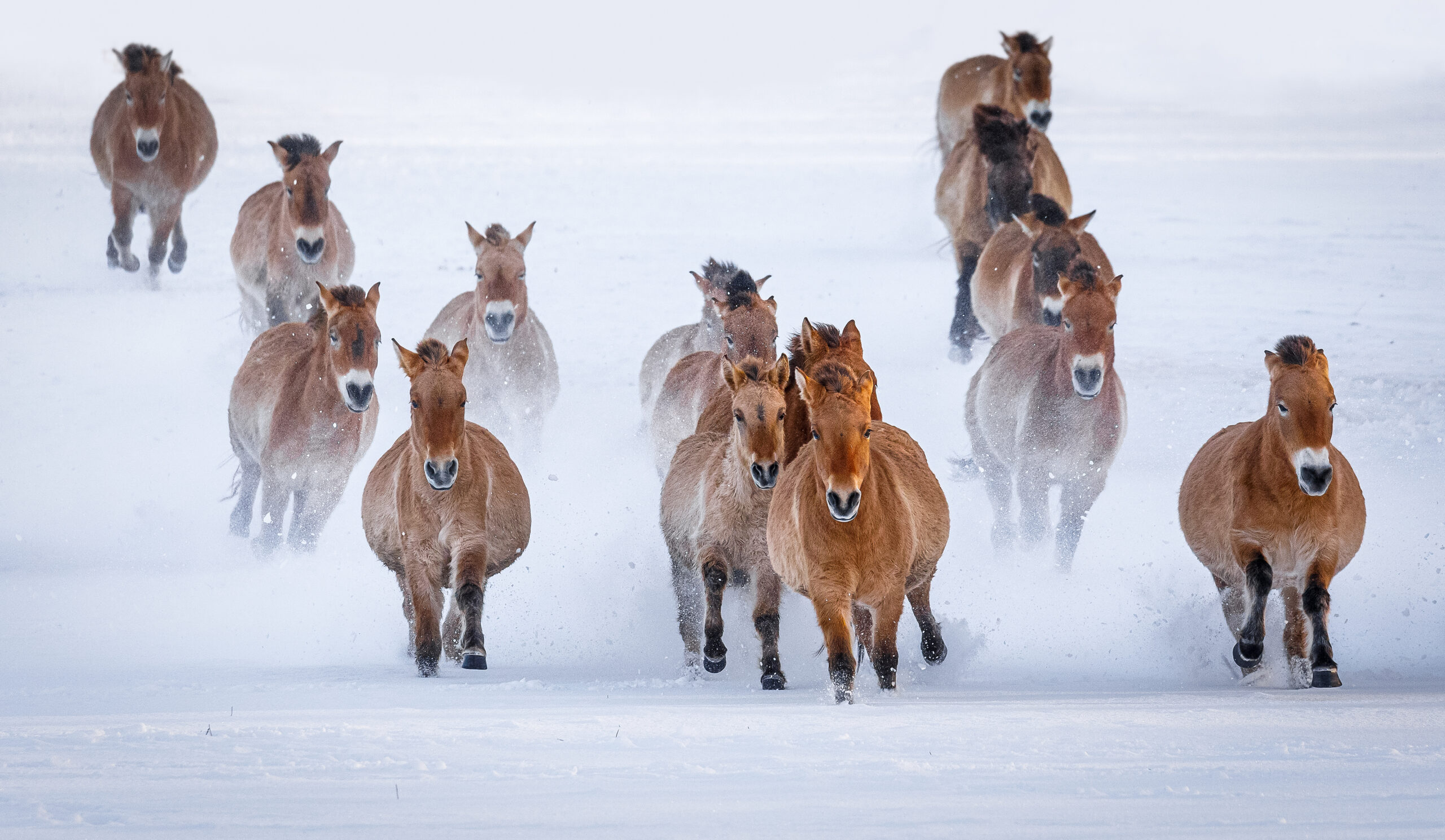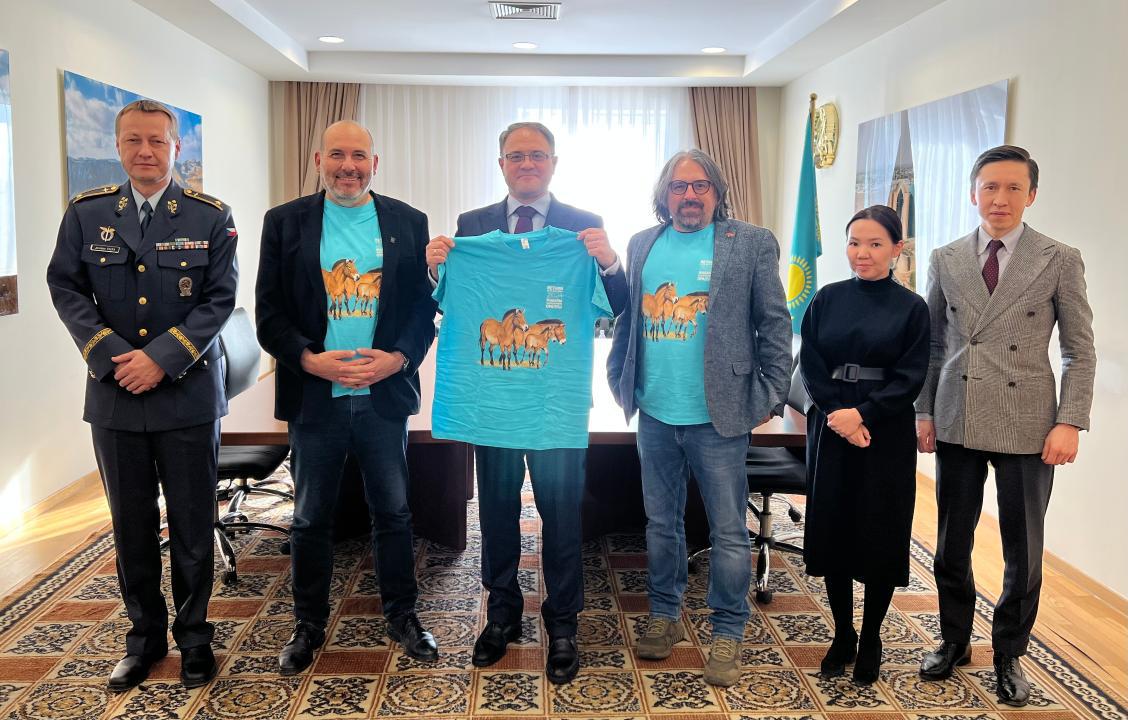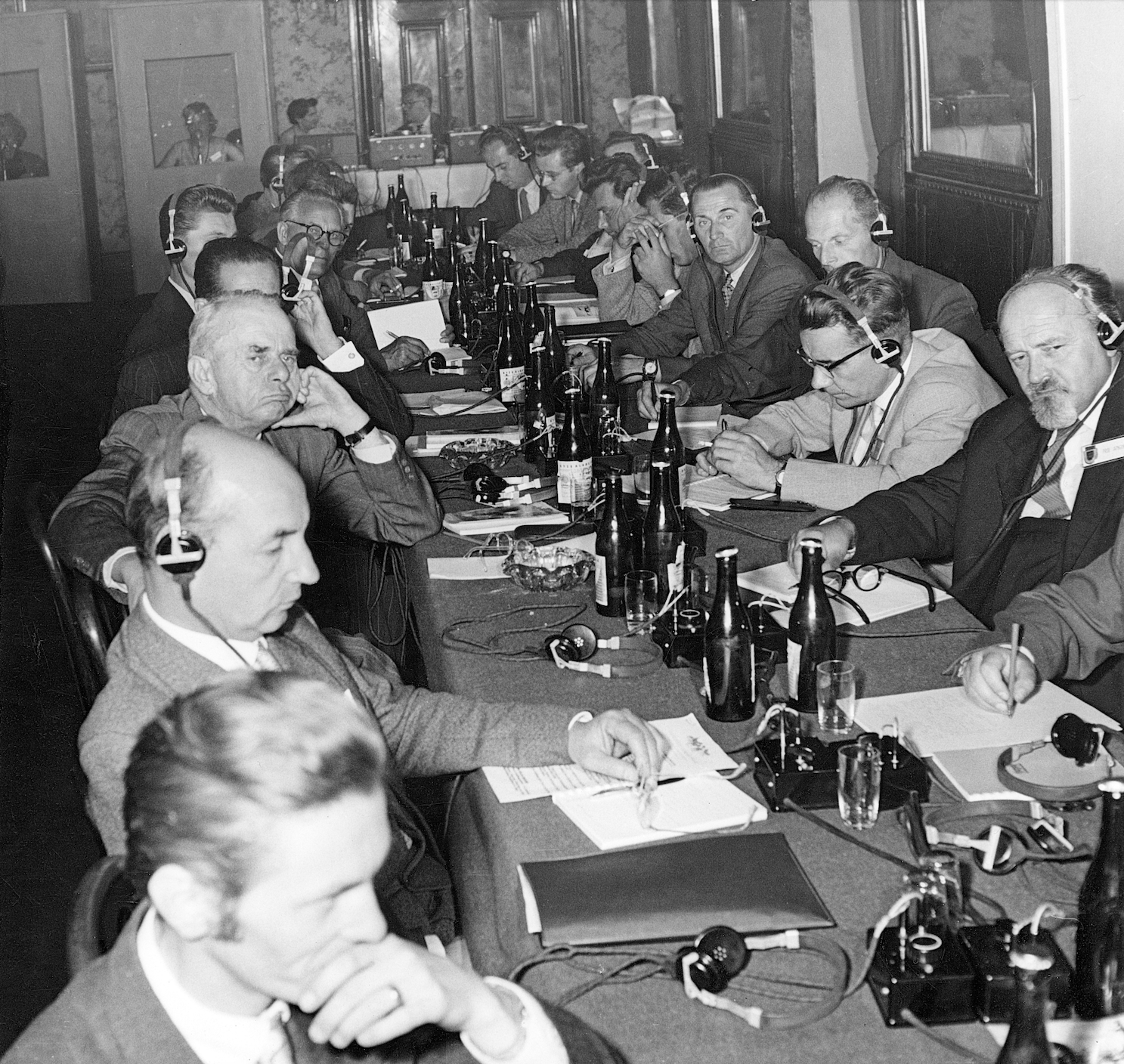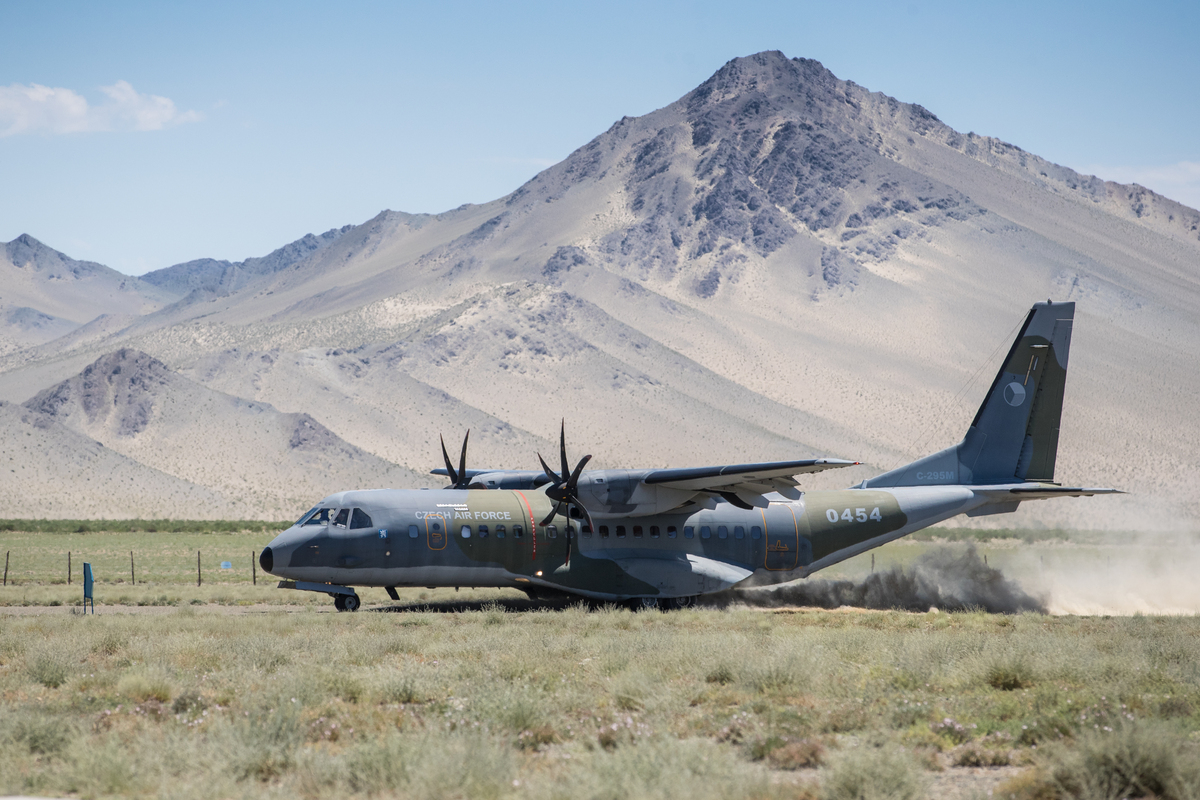ASTANA – On June 3, two CASA C-295 aircrafts of the Czech Air Force will transport eight Przewalski’s horses to Kazakhstan. After landing in the Arkalyk Airport, the endangered species of wild ungulates will be accommodated in the Altyn Dala state nature reserve in the Kostanai Region. This was announced at a Feb. 29 conference at the Central Communications Service (CCS) in Astana.

Przewalski’s horses. Photo credit: Miroslav Bobek.
One plane will take off from Berlin, Germany, and the other from Prague, the Czech Republic. Both routes include two stopovers – the first one in Istanbul, Türkiye, and the second in Baku, Azerbaijan. Over the next five years, it is planned to transport at least 40 Przewalski’s horses.
Breeding programs of European zoos have built up a population strong enough to be reintroduced to the countries where they used to live. The Prague Zoo manages the international breeding book of Przewalski’s horses, as well as the European Association of Zoos and Aquariums (EAZA) Ex situ programs (EEP) for the conservation of wild animals in European zoos.

Miroslav Bobek, the director of the Prague zoo, met with Kazakh Deputy Foreign Minister Roman Vassilenko in Astana. Photo credit: the Kazakh Foreign Ministry.
In 2022, the Kazakh government approached the Prague Zoo with a request for cooperation. Miroslav Bobek, the director of the Czech zoo, expressed positive expectations on the reintroduction of Przewalski’s horses in Kazakh steppes based on similar work carried out in Mongolia.
“We transported 38 Przewalski’s horses to the western part of Mongolia – 34 from the Czech Republic and four from the central part of Mongolia. Most of them are mares that have already produced nearly 100 offspring,” said Bobek.
“In Kazakhstan, we have chosen Altyn Dala as the most suitable territory, where the Association for the Conservation of Biodiversity of Kazakhstan (ACBK) has been working for a long time for the preservation of the steppe landscape,” he noted.

The first international symposium on the rescue of Przewalski’s horse was held in 1959 on the initiative of Cyril Purkin, the former director of the Prague Zoo. Photo credit: the Prague Zoo.
The Altyn Dala reserve was established in 2012 with a total area of 489,766 hectares. In the first year, the horses will be accommodated at the Wild Ungulate Reintroduction Center inside the reserve. Managed by ACBK, the center was created as part of the Altyn Dala Conservation Initiative, a large-scale partnership program of national and international conservation organizations.
Speaking about the location for landing, the Arkalyk Airport, Bobek mentioned that the airport was the departure point for Vladimir Remek, the first and only Czechoslovak in space.

The CASA aircraft with Przewalski’s horses on board landing in the Mongolian city of Bulgan. Photo credit: Vaclav Shilhi.
During his visit to Kazakhstan, Bobek met with Kazakh Deputy Foreign Minister Roman Vassilenko to discuss the implementation of the project. The sides agreed to collaborate for the support of reintroduction of the horses.
“I am very pleased that the project, originating from informal discussions between our embassies in Bratislava and Prague, and the zoos in Bratislava and Prague, has received such powerful development and support from the Kazakh and Czech governments,” said Vassilenko.
Daniyar Turgambayev, the chairman of the committee of forestry and wildlife under the Kazakh Ministry of Ecology and Natural Resources, noted it is an “honor to spearhead such an important moment in the restoration of the natural history of Kazakhstan.”
Jaroslav Falta, the commander of the Prague-based 24th transport wing of the Czech Air Force shared an experience in animal transportation, particularly from Spain to the Prague Zoo in 2022.
“Now, our 24th air transport base has been appointed responsible for the transportation of Przewalski’s horses to Kazakhstan. The two refueling stations [in Istanbul and Baku] will cover 4,000 kilometers. We are confident that the project will be successfully implemented,” said Falta.
ACBK is the largest Kazakh non-governmental organization in biodiversity conservation and environmental education. According to Vera Voronova, its executive director, “the restoration of the population of wild ungulates in the Kazakh steppes is of key importance.”
She brought an example of how the Kazakh state managed to restore the population of saiga antelopes. As a result of the activities carried out by environmental services, there are now nearly 1.5 million saigas in the West Kazakhstan Region.
On April 24, 2023, as part of the Kazakh-Czech business forum, the Kazakh Ministry of Ecology, Geology, and Natural Resources and the Prague Zoo signed a memorandum of cooperation, which envisaged the return of Przewalski’s horses to Kazakh steppes.

